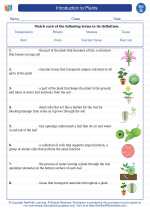Introduction to Plants -> cellulose
Cellulose
Cellulose is a complex carbohydrate found in the cell walls of plants. It is the most abundant organic compound on Earth and plays a crucial role in the structure and support of plant cells.
Structure of Cellulose
Cellulose is a polymer, meaning it is made up of repeating units of glucose molecules linked together. The glucose units are linked by β-1,4-glycosidic bonds, forming long, linear chains. These chains are held together by hydrogen bonds, creating a strong and rigid structure.
Function of Cellulose
Cellulose provides rigidity and strength to plant cell walls, allowing them to maintain their shape and support the plant's structure. It also provides a protective barrier for the plant cells, preventing pathogens and other harmful agents from entering.
Digestibility of Cellulose
While cellulose is a major component of the human diet through the consumption of plant-based foods, humans lack the enzyme required to break down the β-1,4-glycosidic bonds in cellulose. As a result, cellulose is considered a dietary fiber and passes through the digestive system relatively unchanged. However, cellulose is important for maintaining digestive health and regularity.
Study Guide
- What is the chemical structure of cellulose?
- What role does cellulose play in plant cells?
- Why is cellulose considered a dietary fiber?
- How is cellulose digested in the human body?
- Discuss the importance of cellulose in maintaining plant structure and support.
Understanding the structure and function of cellulose is crucial for comprehending the biology of plants and the role of dietary fiber in human nutrition.
.◂Science Worksheets and Study Guides Seventh Grade. Introduction to Plants
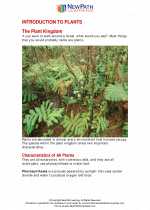
 Worksheet/Answer key
Worksheet/Answer key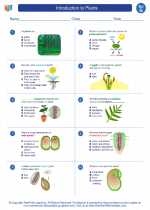
 Worksheet/Answer key
Worksheet/Answer key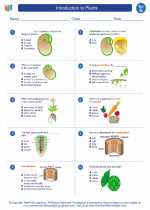
 Worksheet/Answer key
Worksheet/Answer key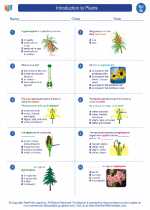
 Worksheet/Answer key
Worksheet/Answer key
 Vocabulary/Answer key
Vocabulary/Answer key
 Vocabulary/Answer key
Vocabulary/Answer key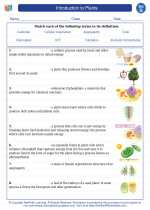
 Vocabulary/Answer key
Vocabulary/Answer key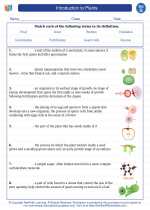
 Vocabulary/Answer key
Vocabulary/Answer key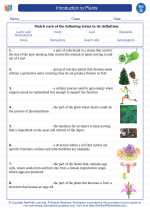
 Vocabulary/Answer key
Vocabulary/Answer key